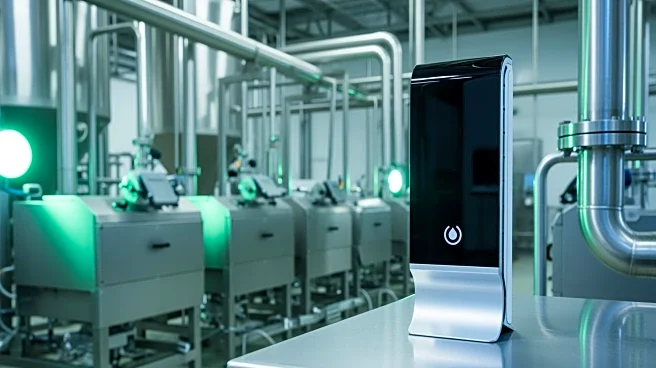What's Happening?
The food and beverage industry is increasingly adopting digital energy management systems to enhance transparency and efficiency in energy consumption. These systems provide real-time data on energy use,
helping companies identify inefficiencies and optimize processes. For instance, Heineken's Connected Brewery initiative has connected thousands of machines to the cloud, allowing for real-time monitoring and significant reductions in carbon footprint. The push for digital energy management is driven by the need to meet environmental targets and comply with regulations like the Corporate Sustainability Reporting Directive, which mandates detailed emissions reporting.
Why It's Important?
The adoption of digital energy management systems in the food and beverage sector is crucial for reducing operational costs and environmental impact. By optimizing energy use, companies can cut costs and improve sustainability, which is increasingly demanded by investors and consumers. This shift not only helps companies comply with stringent regulations but also positions them as leaders in sustainable practices. The broader impact includes potential cost savings, reduced carbon emissions, and enhanced competitiveness in a market that values sustainability.
What's Next?
As more companies adopt digital energy management systems, the industry is likely to see a shift towards more sustainable practices. This could lead to increased investment in technology and infrastructure to support these systems. Additionally, companies may face pressure to further innovate and improve their sustainability metrics to stay competitive. The ongoing development of energy management solutions will likely continue to evolve, offering more advanced features and greater integration with existing systems.











